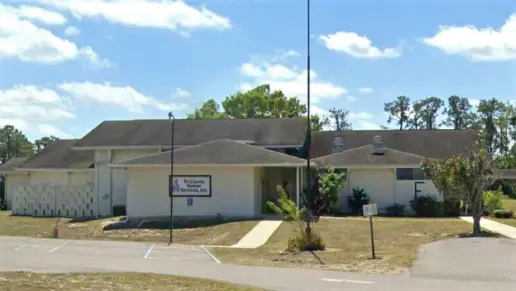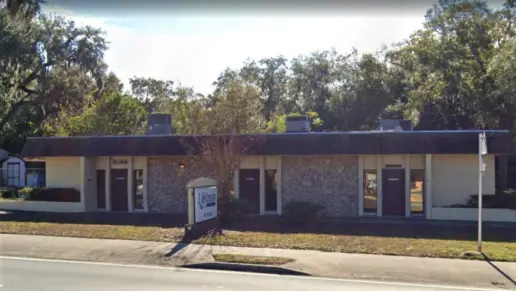About Kindbridge
Kindbridge offers a wide range of teletherapy treatments available for the clinical needs of children, adults, couples, and families. Our therapists are familiar with a wide range of conditions including, anxiety, depression, mood disorder, post-traumatic stress disorder, LGBTQ related issues, gambling disorder, and video gaming disorder.
Teletherapy at your fingertips
We work with you to achieve positive outcomes where and when it’s convenient for you because your mental health and wellbeing matters most. Our Care Coordinators are ready to help you get started today.
Average national wait time to see a therapist is currently 21 days. With Kindbridge, in most cases, we can connect you to one of our licensed therapists within 24 hours.
We offer a variety of teletherapy services including…
Early Intervention Planning
If you are concerned about a loved one and need a hand mapping out how to approach the situation, we will connect you with a therapist that can help you. You will work together with a therapist over a 3-session period to better understand the best course of action.
• Multiple planning sessions and a follow-up session
• Can be done from anywhere via face-to-face video sessions
Self-Care
You’ll start with a coach consultation where you will work together to construct a 6-week plan to help you better understand how to manage your mental health on an ongoing basis.
• Consistent coach to keep you motivated and engaged
• Weekly check-ins with your coach to keep you on track
• Can be done from anywhere via face-to-face video sessions
Coaching
Therapy is not necessarily the answer for everyone. Coaches that specialize in mental health and are grounded in evidence-based therapy principles can help you when you are struggling with the weight that life can place on your shoulders.
• Consistent support for everyday stressors such as, relationships, job issues, loss of a loved one, life transitions, gambling troubles, gaming troubles, and financial loss
• Weekly check-ins with your coach to keep you on track
• Can be done from anywhere via face-to-face video sessions
Therapy
We provide access to high-quality therapists equipped with a variety of specialties that are vetted thoroughly and use only evidence-based treatment approaches such as Cognitive Behavioral Therapy (CBT) and Acceptance & Commitment Therapy (ACT)
• Wide range of treatments available for the clinical needs of children, adults, couples, and families
• Wide range of conditions our therapists are familiar with including, anxiety, depression, mood disorder, post-traumatic stress disorder, LGBTQ related issues, gambling disorder, and gaming disorder.
• Can be done from anywhere via face-to-face video sessions
Recovery Coaching
If you have recently completed a treatment program and are looking for continued support in a more independent manner, recovery coaching is for you. We will connect you with one of our coaches that can help you navigate your transition back into everyday life.
• A check-in cadence and communication plan will be developed with your coach during the first session
• Can be done from anywhere via face-to-face video sessions
We accept multiple insurance providers for therapy services including Aetna, United Healthcare, Cigna, and Medicare, in most instances. In the event that we are out of network with your health insurance provider we will work with you to help you file the claim directly with them so that you can receive reimbursement for services.
Our Teletherapists have a wide range of specialties, including:
o Gambling Disorder
o Gaming Disorder
o Anxiety Disorders
o Depression
o Dissociative Disorders
o Eating Disorders
o Posttraumatic Stress Disorder
Gallery
Location
Other Forms of Payment
Medicare is a federal program that provides health insurance for those 65 and older. It also serves people under 65 with chronic and disabling health challenges. To use Medicare for addiction treatment you need to find a program that accepts Medicare and is in network with your plan. Out of pocket costs and preauthorization requirements vary, so always check with your provider.
Private insurance refers to any kind of healthcare coverage that isn't from the state or federal government. This includes individual and family plans offered by an employer or purchased from the Insurance Marketplace. Every plan will have different requirements and out of pocket costs so be sure to get the full details before you start treatment.
Self-pay involves paying for treatment out of your own pocket. You can use savings or credit, get a personal loan, or receive help from family and friends to fund your treatment. If you don't have insurance or your insurance plan doesn't cover a specific program, self-pay can help ensure you still get the care you need.
Addiction Treatments
Levels of Care
Treatments
Mental health rehabs focus on helping individuals recover from mental illnesses like bipolar disorder, clinical depression, anxiety disorders, schizophrenia, and more. Mental health professionals at these facilities are trained to understand and treat mental health issues, both in individual and group settings.
Clinical Services
Whether a marriage or other committed relationship, an intimate partnership is one of the most important aspects of a person's life. Drug and alcohol addiction affects both members of a couple in deep and meaningful ways, as does rehab and recovery. Couples therapy and other couples-focused treatment programs are significant parts of exploring triggers of addiction, as well as learning how to build healthy patterns to support ongoing sobriety.
Research clearly demonstrates that recovery is far more successful and sustainable when loved ones like family members participate in rehab and substance abuse treatment. Genetic factors may be at play when it comes to drug and alcohol addiction, as well as mental health issues. Family dynamics often play a critical role in addiction triggers, and if properly educated, family members can be a strong source of support when it comes to rehabilitation.
Group therapy is any therapeutic work that happens in a group (not one-on-one). There are a number of different group therapy modalities, including support groups, experiential therapy, psycho-education, and more. Group therapy involves treatment as well as processing interaction between group members.
In individual therapy, a patient meets one-on-one with a trained psychologist or counselor. Therapy is a pivotal part of effective substance abuse treatment, as it often covers root causes of addiction, including challenges faced by the patient in their social, family, and work/school life.
Contact Information
11431 Lakeside Dr
Doral, FL 33178



